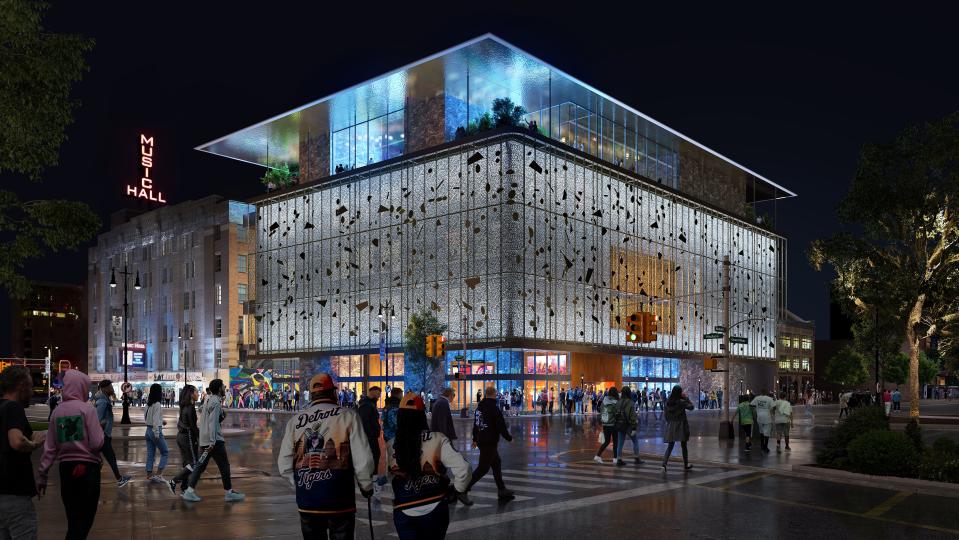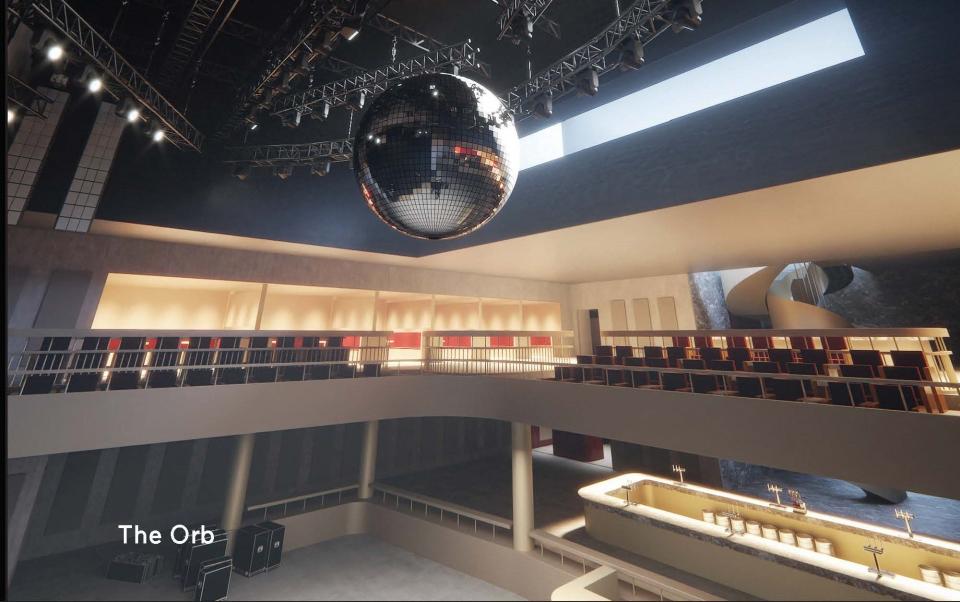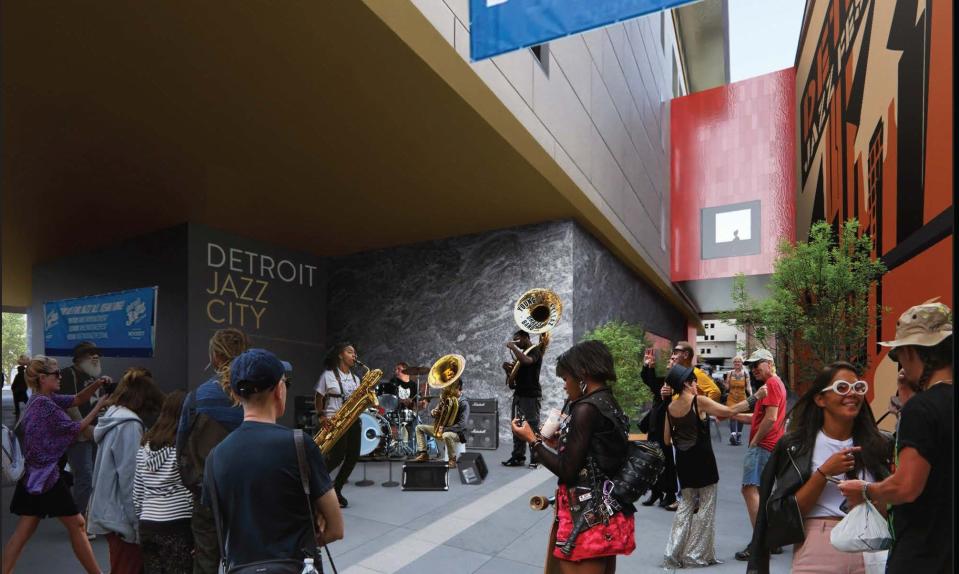Music Hall’s $125 million expansion is a go: Detroit City Council approves bonds plan
Music Hall’s $125 million expansion project is officially moving forward following a city council vote Tuesday.
The council unanimously approved an $80 million nonprofit bonds arrangement for a seven-level, multipurpose music complex that officials say will reshape the city’s theater district and serve as gateway to Detroit’s Paradise Valley Cultural and Entertainment District.
The Music Hall expansion, which has been touted by its proponents as a celebration of Detroit’s music heritage and an embrace of its cultural future, is now set for a summer groundbreaking, with a completion target of December 2026.

It will be the city’s most significant new arts construction in more than two decades, following the 2003 expansion of Orchestra Hall.
The city council authorized $80 million in nonprofit bonds to be issued through Detroit’s Economic Development Corporation (EDC). The bonds will be secured by future Music Hall revenues and its existing mortgage.
The EDC and the city of Detroit will not be liable for payment of the bonds, which will be issued to Music Hall as tax-exempt financing under federal 501(c)(3) guidelines.
The project’s remaining $45 million outlay is being privately financed.
The modern-style building — set to rise alongside the 96-year-old art deco Music Hall at Madison and Grand River avenues — will include a 2,000-capacity performance venue, recital hall, music academy, office space, rooftop club and Detroit welcome center.
The site will also feature an activated alley and streetside theme restaurant, both celebrating Detroit music history.

The new Music Hall structure is designed by Detroit-born architect Tod Williams, whose recent projects include the Barack Obama Presidential Center in Chicago and the renovation of Lincoln Center’s David Geffen Hall in New York.
“It’s full steam ahead,” said Vince Paul, president of Music Hall, who said Tuesday’s city council culminated a yearlong process. “I think there’s no substitute for due diligence. We met with every single city council member — you can’t take anything for granted.”
“You see a lot of development downtown by these titans of industry. We’re the people’s theater. It’s us, ground-level folks, that are also able to develop downtown,” said Paul. “We’re cultural, we’re not-for-profit, and this is a building done by a group of regular Detroit citizens. We’re not billionaires and industrialists. That kind of opportunity, you can’t find in another town.”
Tuesday’s city council decision formalized an April 18 recommendation from the council’s planning and economic development committee.

EDC COO Kenyetta Hairston-Bridges, responding to a question from council member Scott Benson, reiterated Tuesday that neither the city of Detroit nor the EDC will be responsible for payment of the bonds.
She also said there will be no road closures during the Music Hall construction.
Contact Detroit Free Press music writer Brian McCollum: 313-223-4450 or bmccollum@freepress.com.
This article originally appeared on Detroit Free Press: Music Hall’s $125M expansion is a go: City Council approves bonds plan

